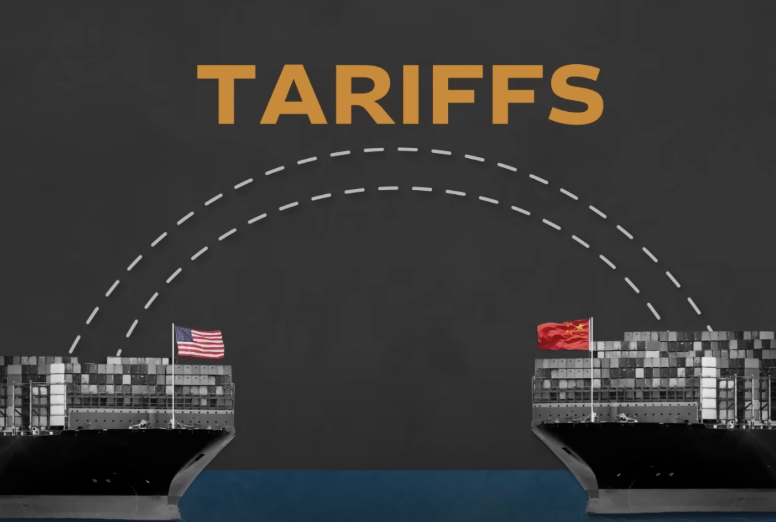News
Federal Reserve Remains Cautious in Cutting Interest Rates Due to Anticipated Effects of Trump’s Tariffs

Source: YouTube
Federal Reserve officials are raising concerns about the economic impact of President Donald Trump’s tariffs. In the January meeting minutes, policymakers noted that businesses are likely to pass on increased costs to consumers, fueling inflation and complicating the central bank’s approach to interest rates. As a result, the Federal Open Market Committee (FOMC) unanimously decided to hold rates steady after three consecutive cuts totaling one percentage point in 2024.
How Trump's Tariffs Could Drive Inflation
Trump’s proposed 25% tariffs on autos, pharmaceuticals, and semiconductors have sparked concerns that they will raise production costs, which will then be transferred to consumers. The Fed minutes reveal that businesses in multiple sectors have indicated plans to pass on these higher costs. Policymakers fear these moves could keep inflation above the 2% target for longer than expected.
Although inflation has eased from its 2022 peak, recent indicators show price pressures persisting. Consumer prices rose more than expected in January, while wholesale prices suggested softer pipeline pressures. Fed officials worry that if tariffs exacerbate inflation, they may be forced to delay interest rate cuts.
The Fed’s Decision to Hold Rates Steady
At its January meeting, the Fed held its benchmark interest rate at 4.25%-4.5%, opting to pause further cuts until inflation shows sustained declines. The decision follows three cuts in 2024, which had reduced rates by a full percentage point. Policymakers emphasized that the current stance allows time to assess economic conditions before making additional adjustments.
Fed Chair Jerome Powell has largely avoided speculating on the impact of Trump’s tariffs, but other officials have acknowledged that they could delay the next rate cut. Market expectations currently price in a rate reduction in July or September, but that outlook could shift if inflation remains stubbornly high.
Market and Policy Uncertainty Grows
Beyond tariffs, Fed officials highlighted broader uncertainties tied to Trump’s economic policies. The administration’s stance on trade, immigration, and fiscal policy could all influence inflation, employment, and economic growth. The Fed minutes also noted that changes in regulatory policies could create optimism for businesses, but the inflation risks from tariffs remain a major concern.
Investors are watching closely to see how the Fed navigates these conflicting pressures. While the economy has remained resilient, persistent inflation could force the Fed to keep rates elevated for longer, affecting borrowing costs for businesses and consumers alike.
Upcoming Tariffs Yet to Be Implemented
In addition to the tariffs already in place, Trump has proposed expanding duties on key sectors. The administration is considering new tariffs on electronics, industrial machinery, and raw materials, with some rates expected to exceed 20%. These measures are intended to curb reliance on foreign manufacturing and encourage domestic production. However, analysts warn that such moves could increase costs for businesses and slow economic growth.
The timeline for these tariffs remains uncertain, as negotiations with trade partners continue. Some industries have begun lobbying for exemptions, arguing that increased costs will disrupt supply chains and lead to job losses. While Trump has maintained that tariffs will boost American manufacturing, the economic impact remains a hotly debated issue.
What’s Next for Trump's Tariff Strategy?
Trump has already implemented some tariffs and recently suggested expanding them further. While he has not provided specifics on timing, the potential for new trade restrictions adds uncertainty to the economic outlook. His administration’s approach will play a critical role in shaping Fed policy decisions in the coming months.
As the debate over tariffs and inflation unfolds, the Fed remains cautious about making further moves. The central bank’s next steps will depend on how inflation trends evolve and whether Trump’s trade policies contribute to prolonged price pressures.
Should the Fed hold interest rates steady in anticipation of Trump's tariffs? Tell us what you think!



